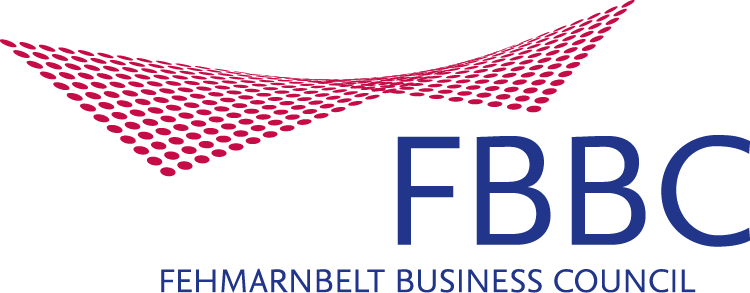FBBC chairman Nicolaus Lange opens the conference “Knowing Fehmarnbelt” at the Fehmarnbelt Days 2014.
For three days, from the 30th of September to the 2nd of October, the Tivoli Congress Center in Copenhagen was the centre of the upcoming Fehmarn Belt Region, which will reach from Northern Germany over Denmark to Southern Sweden. By 2021, at the opening of the Fehmarn Belt Fixed Link, the region and its nine million inhabitants will have grown together. The Fehmarnbelt Days 2014 was a framework for businesses, politics and organizations to learn and discuss the possibilities in the new region.
In the afternoon at the 1st of October, Nicolaus Lange, Chairman in Fehmarnbelt Business Council and CEO at the Merchants’ Association, welcomed the participants at the conference “Knowing Fehmarnbelt” in three languages: Danish, German and English.
At the conference, ideas and experiences were shared and the possibilities of economic growth due to the Fehmarnbelt-Tunnel were discussed. The focus was on establishing economic and political relations within key areas such as infrastructure, tourism, construction, labour market, transport, logistics, education and science presented by Jesper Bremholm (Vice President Production & Logistics, PostNord Danmark), Henrik Wegener (Executive Vice President and Chief Academic Officer Technical University of Denmark), Jens-Henrik Stillhoff Nicolaisen (Executive Board Member Züblin A/S) und Tørk Eskild Furhauge (CEO Pågen AB).
Already earlier that day, the Copenhagen ARD-Correspondent Marc-Christoph Wagner had welcomed Nicolaus Lange on stage. Together with Dr. Dorothee Stapelfeldt (Vice Major and Science and Research Senator in Hamburg), Dr. Robert Habeck (Vice Minister-President of Schleswig-Holstein and Minister of Energy, Agriculture, the Environment and Rural Areas) and the Danish Transport Minister Magnus Heunicke, Lange was part of a panel debate in the morning conference „Green Growth – Regions in Motion“. He highlighted the environmental advantages of the Fehmarn Belt Fixed Link: “We particularly see the environmental advantages in the new opportunities of centralized logistics and coordinated supply chains.”
